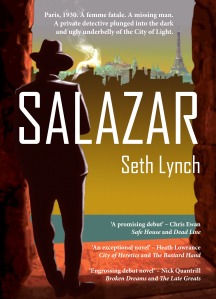Michale Malone’s debut Blood Tears was a dark, blood-soaked novel set around abuses in a Catholic childrens home, a weighty subject but well handled, and after reading it I was eagery awaiting the next outing for DI Ray McBain. A Taste for Malice is out now and I’m pleased to say it has lived up to the promise of Blood Tears.
After his previous shenanigans McBain is back on the job but not on the street, shackled to a desk until his physical and psychological scars have healed. His personal life isn’t in much better shape either, with his married lover out of the picture and his relationships with the women in his life remaining stubbornly plutonic. Mired in tedious paperwork McBain stumbles across an overlooked case which pricks his copper’s instinct – two young children who have been abused by a woman the family trusted to care for them. She’s disappeared and the family want justice. McBains aims to get them it.
Meanwhile Jim Hilton is welcoming his wife Angela back home from hospital after an accident which has robbed her of her memory. For Jim it’s an oportunity to rebuild their marriage, she doesn’t remember anything about the previous years estrangement, and he is determined to keep her away from anyone who might tell her the truth. At least until he’s made her fall in love with him again. Then Moira shows up at their front door. Jim is struggling with Angela’s condition and puts aside his unease to accept Moira’s help. But isn’t this ‘friend’ just a little too good to be true?
As McBain investigates the initial crime, without his superiors knowledge, shielded by a couple of loyal colleagues, Moira insinuates herself into the Hilton’s life, and as a reader you know these two storylines are eventually going to converge, the only question is how much damage will be done before they do.
All of the elements which made Blood Tears such a compelling read are here too, the effortless prose and the piercing insight which creates characters you not only believe in but actually feel for, and of course, there’s McBain, attractive despite his flaws, given to moments of intense introspection leavened by a downright bawdy sense of humour. He’s one of crime fictions more credible detectives and I’m looking forward to seeing how he develops as the series continues.
This is a very different book to Blood Tears, less violent but far more unsettling, because instead of a twisted killer it presents a destructive force which hides behind a perfectly amenable exterior, the kind of person you might actually allow to look after your kids or a sick relative. It invites questions about how easily we trust strangers who are designated as ‘carers’ and cleverly subverts the conventional portayal of sadists, showing just how damaging ‘small’ acts of violence can be.
Deeply disturbing and emotionally charged, A Taste for Malice is a must read for fans of psychological crime fiction.

